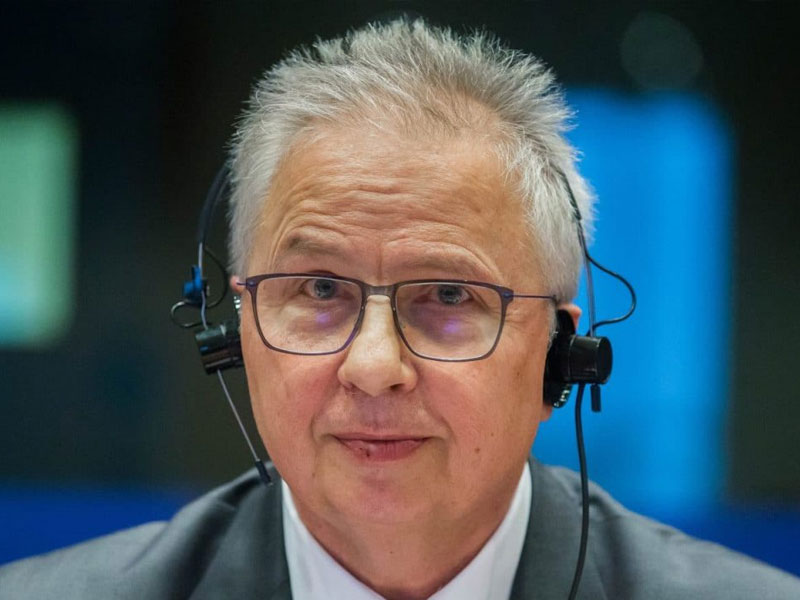The nomination of László Trócsányi, a former Hungarian justice minister, as the European Union’s next enlargement commissioner proved to be incendiary news in the Western Balkans. Regional media and civic figures believe that the nomination of the man who was in charge of Prime Minister Viktor Orban’s dismantling of Hungary’s justice system demonstrates how low enlargement and the region rate in the EU’s worldview. In addition, it was interpreted as proof that democratic development and adherence to fundamental rights are not a priority in the EU’s relationship with Western Balkan governments and societies.
The nomination came as a particular blow given that the EC’s February 2018 enlargement strategy and the most recent country reports placed particular emphasis on the rule of law. This emphasis came largely in response to the EU’s need to address what it rightly, but belatedly, called “state capture” in North Macedonia under Prime Minister Nikola Gruevski. Spurred by the release of recordings documenting a host of governmental abuses of power, a report assembled by an expert team led by former EC official Reinhard Priebe systematically assessed shortcomings in North Macedonia’s rule of law and enumerated a list of recommendations. Regional civil society actors demanded “Priebe reports,” but to date this has been replicated only in Bosnia and Herzegovina, with a report on the state of rule of law due in November.
László Trócsányi’s has been Hungarian PM Viktor Orban’s engineer suborning rule of law to political control. He has now been nominated to be gatekeeper to the EU club for countries which have been repeatedly assessed as sorely deficient on rule of law and other democratic protections and fundamental freedoms. It is not coincidental that Orban and Trócsányi helped Gruevski, convicted of corruption, flee his country and granted him asylum in Hungary. A clearer middle finger to the whole EU on its fundamental values could scarcely be imagined.
Orban clearly wants a low bar for enlargement – he wants more allies in the EU ranks. Unfortunately, the geopolitical angst which has swept the EU will likely assist him. Illiberals from outside the EU – Russia, China, Turkey, and Gulf States – are gaining increasing traction with the nexus of political, economic, and media power held by Balkan elites. Such a calculus would double down on the EU’s long-standing habit of prioritizing stability and bilateral relationships with local strongmen over defending its own professed liberal democratic values and those in the region who have long struggled for them.
As made clear by Hungarian, Polish, Romanian, Croatian and other member states’ backsliding on basic democratic norms, the EU’s leverage for entrenching these standards is strongest at the front door; it dissipates to relative insignificance once a state joins the EU. Contrary to the cynical views oft-heard from Western European members, the progress of these countries was real prior to membership. The tragedy – and lesson – is that progress, even in original member states, can regress. But what is clear is that if progress is not delivered prior to membership, it will not occur afterward. This is a critical challenge for the new Commission – and for the European Parliament.
Trócsányi may well just be a placeholder, following his expected and deserved grilling in the European Parliament, for a less provocative Hungarian nominee. Failed Spitzenkandidat Manfred Weber basically said as much. However, anyone sent by Orban will be doing his bidding in the Commission. A reshuffle of this post to a non-Fidesz member is crucial.
Orban, Kaczynski, and many other EU illiberals are in favor of a worthy goal – EU enlargement – for all the wrong reasons: to build their own ranks in the EU structures and turn it away from its very foundational values. Trócsányi’s nomination and the new model structure of the Commission announced by incoming President Ursula von der Leyen – implies that this subversion has already gained traction. But appeasing Europe’s illiberals will not defeat them.
Von der Leyen represents Germany and the CDU, a conservative party present at the creation of what is now the European Union. If “protecting our European way of life” is to have a connotation truly in keeping with resisting reaction in Europe and conserving the EU’s essence, then it must be reflected in the role of whoever its selected as what amounts to the EU’s recruiting sergeant. A representative of an avowedly “illiberal” government ought to be presumptively disqualified.
It is now up to MEPs in the Committee on Foreign Affairs (AFET) to carry on the fight that many of them and their party groups waged in the last Parliament against Hungary through the Article 7 process. This challenge applies to avowed liberals in the ALDE group, but also to socialists and conservatives. Otherwise, their message will be that the EU’s rules and values apply to those within, but need not apply to countries waiting in line to enter.
Kurt Bassuener and Toby Vogel are co-founders and Senior Associates of the Democratization Policy Council, a Berlin-based think-tank. They are based in Brussels and Dundee, Scotland, respectively.

